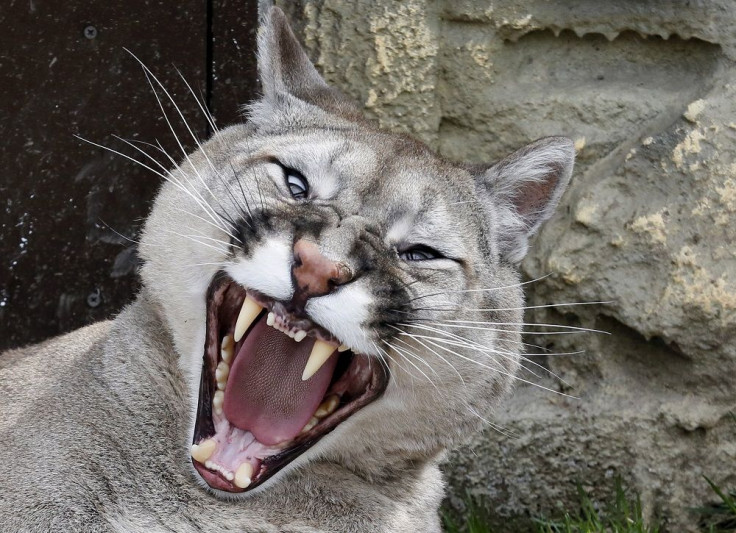US Reclassifies Eastern Cougar To Extinct From Endangered Species, All Chimps As Endangered

Because the last time that an eastern cougar was seen in the US was in the 1930s, the US Fish and Wildlife Service declared on Thursday the big cat as extinct. The service removed the wild animal from the US endangered species list where it was included in 1973.
The last sightings in North America of the eastern cougar was in New Brunswick, Canada, in 1932 and in Maine in 1938 where the beast was killed by a hunter, reports News.com.au.
The animal, also known as eastern puma, was seen from Canada to South Carolina. It was the second time for the eastern cougar to be declared extinct. The first was in 2011, Mark McCullogh, US Fish and Wildlife lead scientist for the eastern cougar, said that the only cougar species that still has a substantial number to breed population is the western cougar that lives on wild lands in the US and Canada.
The service explains the extinction of the eastern cougar to forests being destroyed for wood that drove the whitetailed deer away in Canada and the US. The deer is the primary prey of eastern cougars.
The reclassification of the cougar followed the announcement on June 12 that all chimpanzees in the US would be declared endangered. The decision was the result of a petition in 2010 by the Jane Goodall Institute, The Humane Society of the United States and other groups to remove the distinction between captive chimps that were listed as threatened species and those in the wild that were classified as endangered.
That would extend to captive chimps the same protection under the Endangered Species Act given to wild ones. That means biomedical research companies, interstate traders and exporters and importers of the animal would need to secure permits from the US Fish and Wildlife Service, reports the New York Times. The requirement takes effect on Sept 14 after a 90-day grace period when the new rules became official on June 16.
The rules excludes people who privately own chimps and those used in the entertainment industry, said Dan Ashe, director of the service. While the agency wants to encourage breeding of captive chimps to increase its population, “We expanded a culture of treating these animals as a commodity for research, sale, import and export, and entertainment. That has undermined the conservation of chimpanzees in the wild,” Ashe stated.
To contact the writer, email: vittoriohernandez@yahoo.com





















